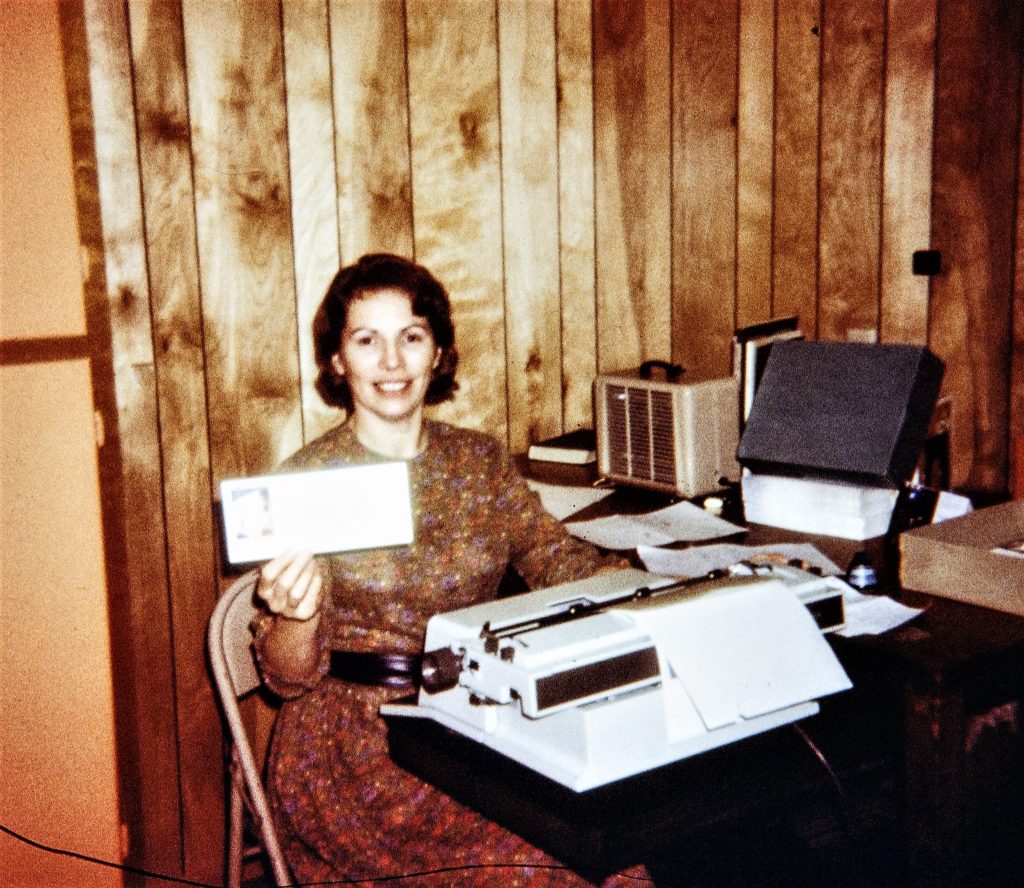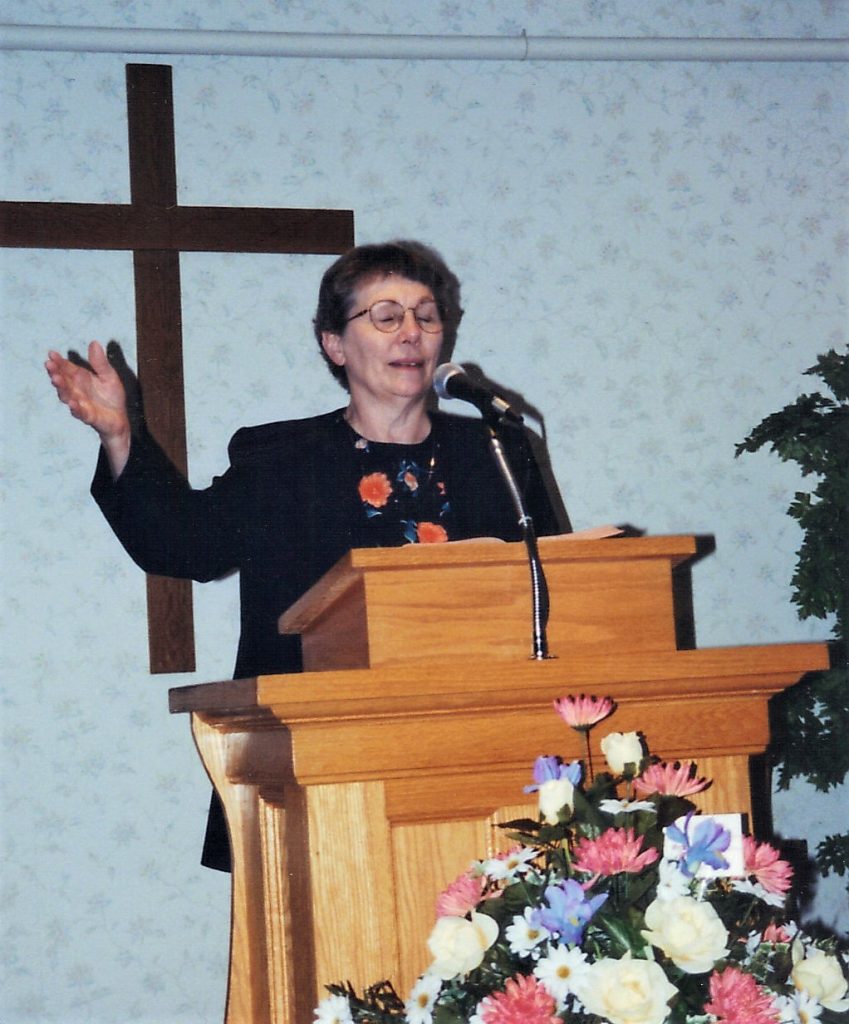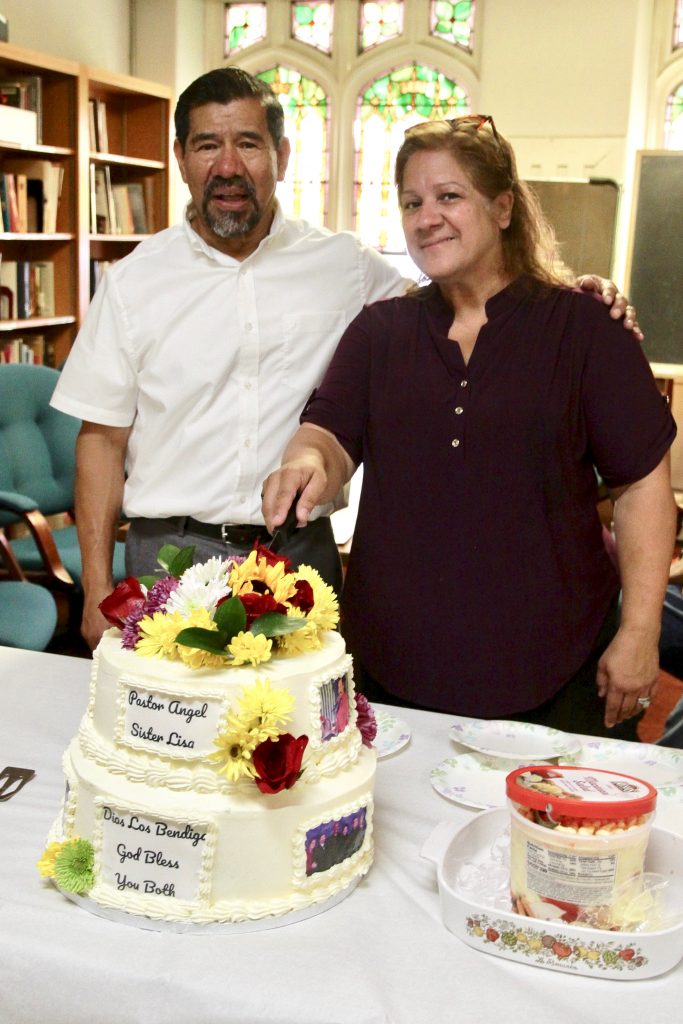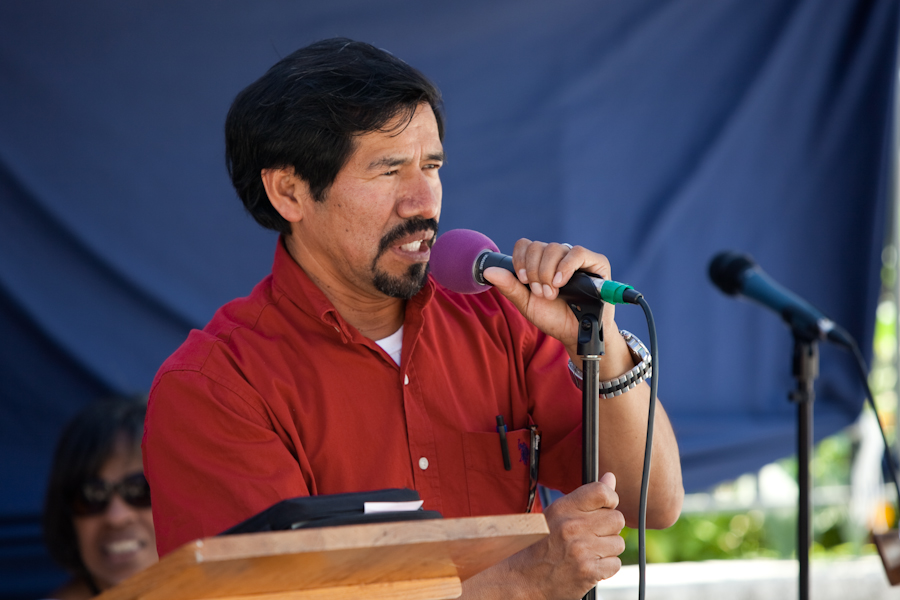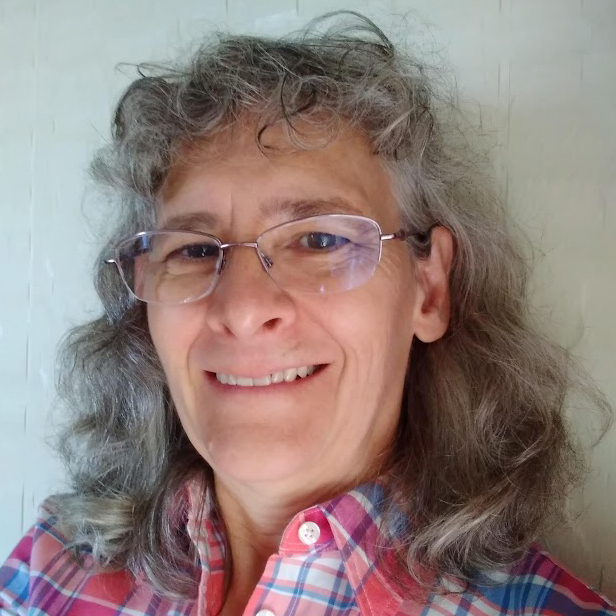by Sharon K. Williams
Lareta (Reta) Halteman Finger grew up in a Mennonite family that was deeply committed to following Christ and serving the church. They regularly attended the Salford Mennonite (Harleysville, PA) congregation. Reta’s 8th-grade-educated father was a thinker and constant Bible reader. But this did not prevent humor from pervading Sunday dinners. A beef roast at the table meant two things: a tasty meal and a not-so-shy roasting of the preacher’s sermon!
One of the older preachers filled out many sentences with the phrase, “You might say…”
“The sermons could have used some help,” Halteman Finger recalls.
For church meetings or other formal events, her family observed the traditional dress code for Franconia Conference Mennonites: a “plain coat” without a tie for men and a cape dress for women. Once baptized, all girls and women wore a prayer covering over long hair braided or pinned up. The concern, enforced by bishops and ministers, was modesty in dress, not being captivated by fashion, and that women should follow Paul’s instructions in 1 Corinthian 11:2–16. The Haltemans observed these practices, but more as a tradition than out of deep conviction.
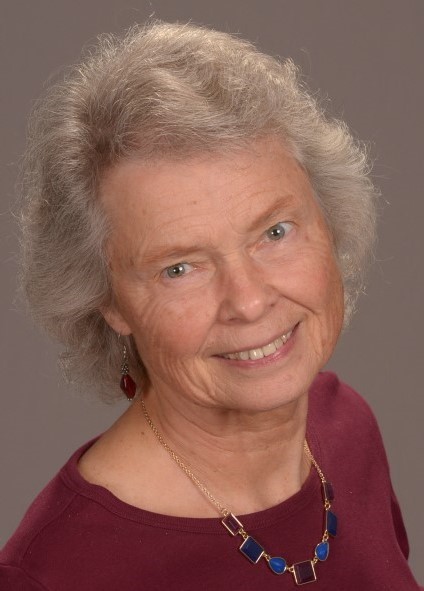
These expectations were practiced to varying degrees in Franconia Conference congregations until the 1960s or later. Clothes, movies, television, and car tires with white walls were the cause of much angst within Mennonite churches and families. Dress code issues had predated and contributed to the 1847 split in the Franconia Mennonite Conference.
But the Halteman family experienced a different reality. A Moyer family of “new Mennonites” (a nickname for Eastern District Conference congregations) were the Haltemans’ closest neighbors and dearest friends. Although “old Mennonites” might have considered the Moyers as worldly for not dressing plain, “we loved them, and they loved us!” Halteman Finger recalls.
Her goal in high school was to be a good Mennonite girl—”but not too good!” While a student at Dock Mennonite Academy, a friendly rival invited her to a student-led prayer meeting. She went reluctantly. The students prayed to Jesus conversationally; they were speaking to a real person in the room! The experience was so liberating and joyful—unlike the “group conviction” she had experienced at the 1950s Brunk revival tent meetings. “It was like being born again!” she recalls.
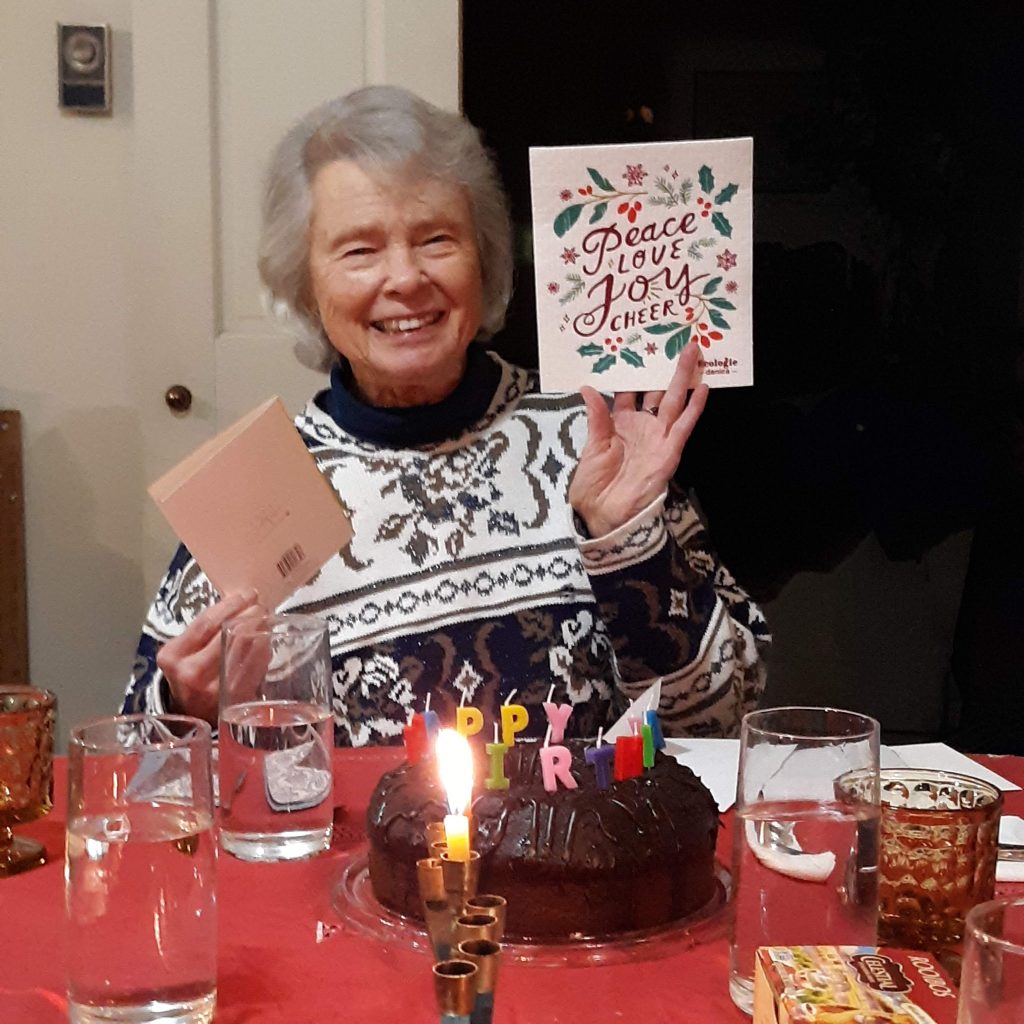
After graduating from Eastern Mennonite University (EMU) with a degree in elementary education, Halteman Finger served at Eastern Mennonite High School as dean of girls. The school had many rules, including cape dresses for women employees. To comply, Halteman Finger’s mother sewed three dresses—with snap-on capes. Compliance without conviction was hard.
Halteman Finger yearned for more biblical study, so she spent a year at Gordon-Conwell Theological Seminary in Weston, Massachusetts. Nothing sharpens one’s Anabaptist theology like immersing in a different theological tradition! The covering and cape dresses were gone for good. Her father did not complain.
When the Finger family moved to Chicago in 1976, Reta worked for and then became editor of Daughters of Sarah, a periodical about Christian feminism. Upon turning 50, she took a leap of faith to study at Garrett-Evangelical Theological Seminary with Dr. Robert Jewett, a Pauline scholar. Although the apostle Paul was not popular with feminist women in the 1990s, Halteman Finger took a deep dive with Dr. Jewett into the multi-cultural realities and challenges of the early church. This revolutionized her view of Paul.
In 1995, Halteman Finger began a 14-year calling to teach New Testament at Messiah University in Mechanicsburg, Pennsylvania. After retiring, she returned to EMU and Seminary as an adjunct professor to teach New Testament, with a specialty in First Corinthians. She is the author or co-author of four books, including Creating a Scene in Corinth: A Simulation (Herald Press, 2013, 2nd edition) and was a regular contributor to Sojourners magazine.
Several of Reta’s faith stories are included in A Church Divided: A Study of 1 Corinthians, the Spring 2025 Salt & Light Bible study curriculum (MennoMedia).
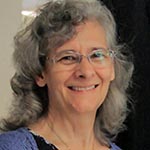
Sharon K. Williams
Sharon K. Williams serves as the minister of worship with the Nueva Vida Norristown (PA) New Life Mennonite congregation.
Mosaic values two-way communication and encourages our constituents to respond with feedback, questions, or encouragement. To share your thoughts or send a message to the author(s), contact us at communication@mosaicmennonites.org.

